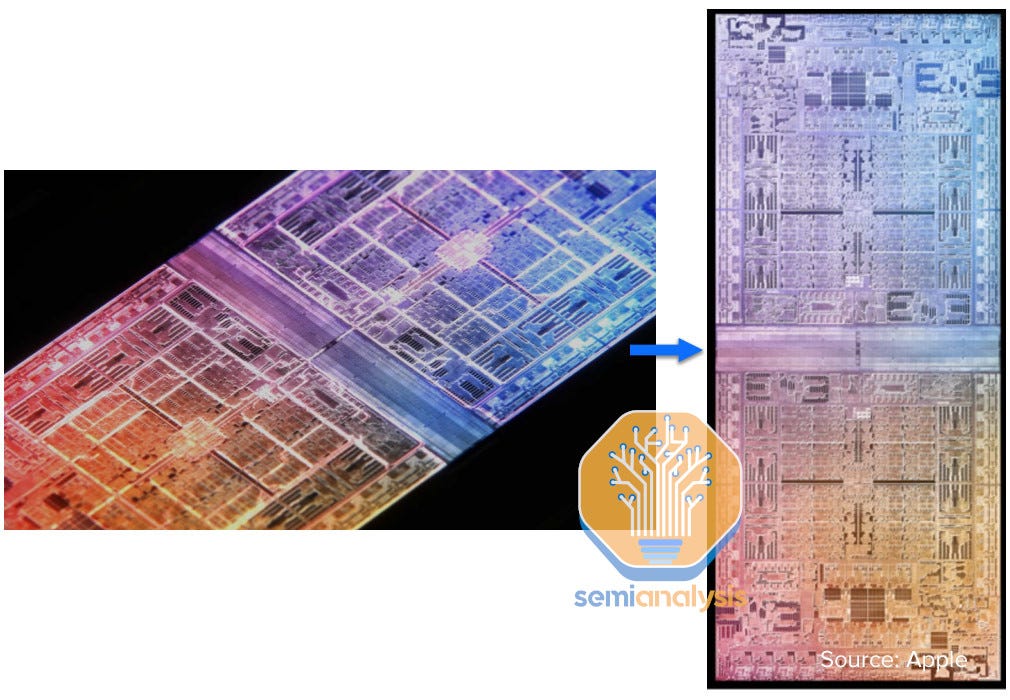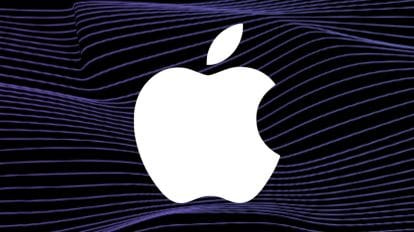Everybody wants to know what Apple will do when it gets into high gear on AI at this stage of the AI Tech Wave. The markets’ expectations on AI for the other ‘Magnificent 7’ tech companies are baked into their valuations already.
Not so much Apple, moving on AI at its own considered pace. I’ve talked about what they’re likely to do soon, especially at its upcoming WWDC Devekoper Conference on June 10.
Ahead of that date, market observers are laying out their best reporting and prognostications. It’s be helpful to discuss, especially since Apple in my view is one of the best situationed companies to truly innovate with AI for the mainstream. Given its uniquely integrated, global hardware, software, and services ecosystem, serving over two billion via their devices daily.
First up is Mark German of Bloombergs in “Apple Bets That Its Giant User Base Will Help It Win in AI”:
“At Apple Inc.’s developers conference next month, the company will unveil a different approach to artificial intelligence, focusing on tools that ordinary consumers can use in their daily lives. The idea is to appeal to a user’s practical side — and leave some of the more whiz-bang features to other companies.”
“Apple is in a challenging position. It needs to convince consumers and investors that it’s doing exciting things in AI. But the company is following major AI announcements from Microsoft Corp., Alphabet Inc.’s Google and OpenAI, which have stolen the spotlight.
“Apple is preparing to spend a good portion of its Worldwide Developers Conference laying out its AI-related features. At the heart of the new strategy is Project Greymatter — a set of AI tools that the company will integrate into core apps like Safari, Photos and Notes. The push also includes operating system features such as enhanced notifications.”
“The system will work as follows: Much of the processing for less computing-intensive AI features will run entirely on the device. But if a feature requires more horsepower, the work will be pushed to the cloud.”
“Apple is bringing the new AI features to iOS 18 and macOS 15 — and both operating systems will include software that determines whether a task should be handled on the device or via the cloud. Most of the on-device features will be supported by iPhone, iPad and Mac chips released in the last year or so. The cloud component, meanwhile, will be powered by M2 Ultra chips located in data centers, as I’ve previously reported.
“There are several new capabilities in the works for this year, including ones that transcribe voice memos, retouch photos with AI, and make searches faster and more reliable in the Spotlight feature. They also will improve Safari web search and automatically suggest replies to emails and text messages.”
“The Siri personal assistant will get an upgrade as well, with more natural-sounding interactions based on Apple’s own large language models — a core technology behind generative AI. There’s also a more advanced Siri coming to the Apple Watch for on-the-go tasks. Developer tools, including Xcode, are getting AI enhancements too.”
One of Apple’s unique advantages of course is its vertical integration with Apple SIlicon across its devices. As I outlined a few days ago, it’s an area Microsoft is Microsoft is leveraging for its ‘AI Copilot + PCs’, using Qualcomm’s next generation Snapdragon Elite X AI optimized silicon, as well as new AI inference optimized chips coming from AMD, Intel and others.
Semianalysis just did a deep dive in “Apple’s AI Strategy: Apple Datacenters, On-device, Cloud, And More”, with a focus on Apple’s AI silicon and data center strategy that’s also worth noting in view of the above AI ambitions:
“While all eyes are on WWDC, Apple’s only announcing AI there, not shipping. The question on everyone’s mind is… what the heck is Apple doing in AI?
“Mark Gurman laid out the features Apple is announcing at WWDC. Furthermore there’s a variety of rumors floating around from others, so let’s get to the bottom of what’s really happening, how, and what Apple can do.”
“The first thing is that multiple sources have reported that Apple is ramping up production of its M-series processors this year to record volumes. This is primarily Apple’s M2 Ultra SKUs which is 2 M2 Max SoCs stitched together with what Apple calls “UltraFusion.”
The piece highlights the similarities between Apple’s ACDC datacenter M2 sillicon with Nvidia’s next generation AI optimized Blackwell GPUs I’ve discussed:
“Ultrafusion is Apple’s marketing name for using a local silicon interconnect (bridge die) to connect the two M2 Max chips in a package. The two chips are exposed as a single chip to many layers of software. M2 Ultra utilizes TSMC’s InFO-LSI packaging technology. This is a similar concept as TSMC’s CoWoS-L that is being adopted by Nvidia’s Blackwell and future accelerators down the road to make large chips. The only major difference between Apple and Nvidia’s approaches are that InFO is chip-first vs CoWoS-L is chip-last process flow, and that they are using different types of memory.”
More importantly, Apple continues to build out its AI Infrastructure team with pedigreed personnel (link mine):
“The other indication that Cupertino is serious about their AI hardware and infrastructure strategy is they made a number of major hires a few months ago. This includes Sumit Gupta who joined to lead cloud infrastructure at Apple in March. He’s an impressive hire. He was at Nvidia from 2007 to 2015, and involved in the beginning of Nvidia's foray into accelerated computing. After working on AI at IBM, he then joined Google’s AI infrastructure team in 2021 and eventually was the product manager for all Google infrastructure including the Google TPU and Arm based datacenter CPUs.”
“He’s been heavily involved in AI hardware at Nvidia and Google who are both the best in the business and are the only companies that are deploying AI infrastructure at scale today. This is the perfect hire.”
The whole piece is worth reading for its technical detail, but the bottom line is as follows:
“As such, this year and next year we will still see Apple using their beefed up laptop and desktop Apple silicon.”
As fot Apple’s own cloud-side LLM AI models, Semianalysis posits that:
“Apple will use someone else’s models”.
“Apple has shown some model efforts, but certainly nothing that comes close to GPT-4, Gemini, or Claude. Apple needs to offer frontier models. At the end of the day, they simply haven’t spun up the compute power or talent to be able to train their own frontier model. However, they need to be able to serve AI to their userbase and one that is tailored to the Apples values and ethos.”
Bottom line, as Ben’s Bites summarizes in “Apple might carve a new path in the AI Frenzy”:
“Instead of chasing the latest trends, Apple's Project Greymatter (i.e. plan for WWDC) is all about enhancing your existing workflow. Smarter photo editing, turbocharged Spotlight search, and Siri upgrades. They're also adding some fun stuff, like AI-generated emojis and a customizable home screen.”
“This means your iPhone, iPad, or Mac could become an AI powerhouse without you even realizing it. Most of the AI magic happens on your device, so your data stays private. For heavier tasks, Apple is betting on their M2 Ultra chips in the cloud to handle the load.”
“They're also partnering with OpenAI to bring you the ChatGPT experience. There is no official announcement yet, but it looks like a done deal. Don't count out Google just yet, Apple's still in talks with them to potentially add Gemini as another option.”
“Even if Apple's not reinventing the wheel, its sheer scale could make it the biggest player in AI overnight. With hundreds of millions of devices ready to go, even a "preview" launch could mean massive adoption. The plan is simple: Apple might not be leading the AI race now, but it definitely wants to win it in the long run.”
Again, as I’ve outlined before, this early in the AI Tech Wave, Apple still has room to carve out and roll out its AI strategy at scale. It may take a bit longer than many would like, but given the company’s track record and unique way of doing things, Apple will likely leverage AI better than currently expected. Stay tuned.
(NOTE: The discussions here are for information purposes only, and not meant as investment advice at any time. Thanks for joining us here)










